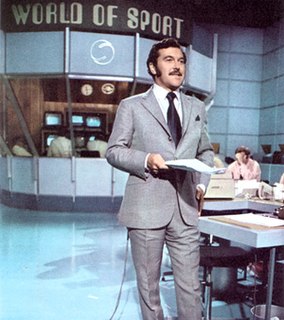This page is based on this
Wikipedia article Text is available under the
CC BY-SA 4.0 license; additional terms may apply.
Images, videos and audio are available under their respective licenses.

Channel 4 is a British public-service television broadcaster that began transmission on 2 November 1982. Although largely commercially self-funded, it is ultimately publicly owned; originally a subsidiary of the Independent Broadcasting Authority (IBA), the station is now owned and operated by Channel Four Television Corporation, a public corporation of the Department for Digital, Culture, Media and Sport, which was established in 1990 and came into operation in 1993. With the conversion of the Wenvoe transmitter group in Wales to digital on 31 March 2010, Channel 4 became a UK-wide TV channel for the first time.

ITV is a British free-to-air Television network. Headquartered in London, it was launched in 1955 as Independent Television under the auspices of the Independent Television Authority to provide competition to BBC Television, that was established in 1932. ITV is also the oldest commercial network in the UK. Since the passing of the Broadcasting Act 1990, its legal name has been Channel 3, to distinguish it from the other analogue channels at the time, namely BBC 1, BBC 2 and Channel 4. In part, the number 3 was assigned because television sets would usually be tuned so that the regional ITV station would be on the third button, with the other stations being allocated to the number within their name.

ITV Granada is a regional television company in North West England. It is the largest independent television-franchise producing company in the UK, accounting for 25% of the total broadcasting output of the ITV network.
Television in the United Kingdom started in 1936 as a public service which was free of advertising. Currently, the United Kingdom has a collection of free-to-air, free-to-view and subscription services over a variety of distribution media, through which there are over 480 channels for consumers as well as on-demand content. There are six main channel owners who are responsible for most material viewed. There are 27,000 hours of domestic content produced a year at a cost of £2.6 billion. Since 24 October 2012, all television broadcasts in the United Kingdom have been in a digital format, following the end of analogue transmissions in Northern Ireland. Digital content is delivered via terrestrial, satellite and cable, as well as over IP.
BBC One is the first and principal television channel of the British Broadcasting Corporation in the United Kingdom, Isle of Man and Channel Islands. It was launched on 2 November 1936 as the BBC Television Service, and was the world's first regular television service with a high level of image resolution. It was renamed BBC TV in 1960, using this name until the launch of the second BBC channel BBC2 in 1964, whereupon the BBC TV channel became known as BBC1, with the current spelling adopted in 1997.

Test Card F is a test card that was created by the BBC and used on television in the United Kingdom and in countries elsewhere in the world for more than four decades. Like other test cards, it was usually shown while no programmes were being broadcast. It was the first to be transmitted in colour in the UK and the first to feature a person, and has become an iconic British image regularly subject to parody.

UKTV is a British multi-channel broadcaster, jointly owned by BBC Studios and Discovery, Inc. It was formed on 26 March 1992 through a joint venture between the BBC and Thames Television. It is one of the United Kingdom's largest television companies.
BBC Choice was a BBC TV station which launched on 23 September 1998 and closed on 8 February 2003. It was the first British TV channel to broadcast exclusively in digital format, as well as the BBC's second non-terrestrial channel launch.
Digital terrestrial television in the United Kingdom encompasses over 100 television, radio and interactive services broadcast via the United Kingdom's terrestrial television network and receivable with a standard television set. The majority of digital terrestrial television (DTT) services, including the five former analogue channels, are broadcast free-to-air, and a further selection of encrypted pay TV services are also available.
ITV Sport is a sport producer for ITV. It was formed following the merger between Granada Sport and Central Sport.

ITV Studios is a television production company owned by the British television broadcaster ITV plc. It is primarily based in Greater Manchester and London in the United Kingdom. It was formerly ITV Productions, and originally Granada Productions.
Analogue terrestrial television in the United Kingdom was originally the method by which the significant majority of viewers in the UK, the Channel Islands and the Isle of Man received television. Analogue terrestrial television broadcasts have ceased everywhere in the UK with Northern Ireland being the last region to have ceased broadcasting analogue terrestrial television broadcasts. Northern Ireland switched off the last analogue television signals, making all of the United Kingdom only capable of receiving digital television, in the early hours of 24 October 2012. It has been completely replaced by digital terrestrial television and other non-terrestrial means as of the end of 2012.
This is a list of British television related events from 2001.
Channel 5 airs a wide variety of programming that covers various genres and themes. Launched in 1997, the channel has always been seen to have less distinctive programming than their other terrestrial rivals at the BBC, ITV and Channel 4.
This is a timeline of the history of ITV.
This is a timeline of the history of Channel 4.







